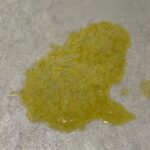Why Do Humans Fart? Flatulence, the expulsion of gas from the digestive system, is a natural biological process. At WHY.EDU.VN, we break down the reasons behind this common occurrence, explaining the digestive processes and other factors involved. Understanding these causes can help you manage and understand your body better, and WHY.EDU.VN is here to help you find the answers. For reliable answers and expert insights, turn to trusted resources on gas formation, digestive health, and gastrointestinal well-being.
Table of Contents
- 1.1 What is Flatulence?
- 1.2 How Much Farting is Normal?
2. The Digestive Process and Gas Formation - 2.1 Swallowing Air (Aerophagia)
- 2.2 Bacterial Fermentation in the Colon
- 2.3 Foods That Cause Gas
3. Dietary Factors Contributing to Flatulence - 3.1 High-Fiber Foods
- 3.2 Sugars and Sweeteners
- 3.3 FODMAPs
4. Medical Conditions Associated with Excessive Flatulence - 4.1 Irritable Bowel Syndrome (IBS)
- 4.2 Small Intestinal Bacterial Overgrowth (SIBO)
- 4.3 Lactose Intolerance
- 4.4 Celiac Disease
- 4.5 Gastroparesis
5. Lifestyle Factors Influencing Flatulence - 5.1 Eating Habits
- 5.2 Physical Activity
- 5.3 Stress and Anxiety
6. The Composition of Farts - 6.1 Common Gases Found in Flatulence
- 6.2 Factors Affecting Odor
7. The Science of Farting Sounds - 7.1 Factors Influencing the Volume and Pitch of Farts
- 7.2 Environmental Factors
8. Cultural Perspectives on Flatulence - 8.1 Social Acceptability
- 8.2 Humor and Embarrassment
9. Managing and Reducing Flatulence - 9.1 Dietary Adjustments
- 9.2 Over-the-Counter Remedies
- 9.3 Medical Treatments
10. Home Remedies for Relieving Gas - 10.1 Herbal Teas
- 10.2 Exercise and Movement
- 10.3 Abdominal Massage
11. When to Seek Medical Advice - 11.1 Symptoms That Warrant a Doctor’s Visit
- 11.2 Diagnostic Tests for Gastrointestinal Issues
12. Research and Studies on Flatulence - 12.1 Notable Findings
- 12.2 Ongoing Research
13. Fun Facts About Farts - 13.1 Interesting Trivia
- 13.2 Farts in Popular Culture
14. Expert Opinions on Gut Health and Flatulence - 14.1 Insights from Gastroenterologists
- 14.2 Tips for Maintaining a Healthy Gut
15. FAQ About Flatulence
16. Conclusion
1. The Basics of Flatulence
1.1 What is Flatulence?
Flatulence, commonly known as farting, is the process of expelling gas from the digestive tract through the anus. This gas is a byproduct of digestion and the breakdown of food by bacteria in the intestines. Understanding the basics of flatulence involves recognizing that it’s a normal bodily function. The average person produces between 0.5 to 2 liters of gas per day, resulting in multiple episodes of flatulence.
1.2 How Much Farting is Normal?
A healthy individual typically farts around 12 to 25 times per day, according to the Canadian Society of Intestinal Research (GI Society). This range varies from person to person based on diet, lifestyle, and gut health. According to a study by Levitt MD published in the New England Journal of Medicine, most people produce a significant amount of gas daily, but the frequency and volume can depend on what they eat and how their digestive system processes food. If you’re concerned about the amount of gas you’re producing, it’s best to consult with a healthcare professional to rule out any underlying issues.
2. The Digestive Process and Gas Formation
2.1 Swallowing Air (Aerophagia)
One of the primary reasons why humans fart is due to swallowing air, a condition known as aerophagia. Throughout the day, we ingest small amounts of air while eating, drinking, and even talking. Activities such as chewing gum, drinking through a straw, and eating too quickly can increase the amount of air swallowed.
 A person drinking through a straw
A person drinking through a straw
2.2 Bacterial Fermentation in the Colon
The large intestine is home to trillions of bacteria that aid in digestion. When undigested carbohydrates reach the colon, these bacteria ferment them, producing gases such as carbon dioxide, hydrogen, and methane. This fermentation process is essential for breaking down complex carbohydrates, but it also leads to gas production. A study in the Journal of Clinical Gastroenterology highlights that the types of bacteria present in the colon significantly impact the amount and type of gas produced.
2.3 Foods That Cause Gas
Certain foods are more likely to produce gas due to their composition and how they are digested. These include high-fiber foods, certain sugars, and complex carbohydrates. Common culprits include beans, broccoli, cabbage, onions, and dairy products. According to the International Foundation for Functional Gastrointestinal Disorders (IFFGD), individual responses to these foods can vary, and keeping a food journal can help identify personal triggers.
Foods That Commonly Cause Gas
| Food Group | Examples |
|---|---|
| Vegetables | Broccoli, cabbage, onions, cauliflower |
| Legumes | Beans, lentils, peas |
| Dairy | Milk, cheese, ice cream |
| Fruits | Apples, pears, peaches |
| Whole Grains | Wheat, bran |
3. Dietary Factors Contributing to Flatulence
3.1 High-Fiber Foods
Fiber is essential for digestive health, but it can also increase gas production. High-fiber foods like beans, whole grains, and certain vegetables contain complex carbohydrates that are not fully digested in the small intestine. When these undigested fibers reach the colon, bacteria ferment them, leading to gas. Introducing high-fiber foods gradually into your diet can help your body adjust and reduce gas.
3.2 Sugars and Sweeteners
Certain sugars and artificial sweeteners can also contribute to increased flatulence. Fructose, found in fruits and honey, and sorbitol, an artificial sweetener, are poorly absorbed by some people. When these sugars reach the colon, they are fermented by bacteria, producing gas. Limiting your intake of foods high in these sugars can help reduce gas.
3.3 FODMAPs
FODMAPs (Fermentable Oligosaccharides, Disaccharides, Monosaccharides, and Polyols) are a group of carbohydrates that are poorly absorbed in the small intestine. These include foods like garlic, onions, apples, and dairy products. A low-FODMAP diet is often recommended for people with IBS to help reduce gas and bloating. A study published in the American Journal of Gastroenterology found that a low-FODMAP diet significantly reduced symptoms of IBS, including flatulence.
4. Medical Conditions Associated with Excessive Flatulence
4.1 Irritable Bowel Syndrome (IBS)
Irritable Bowel Syndrome (IBS) is a common gastrointestinal disorder characterized by abdominal pain, bloating, and changes in bowel habits. People with IBS often experience increased gas production and flatulence. The exact cause of IBS is not fully understood, but it is believed to involve a combination of factors, including gut motility issues and increased sensitivity to gas.
4.2 Small Intestinal Bacterial Overgrowth (SIBO)
Small Intestinal Bacterial Overgrowth (SIBO) occurs when there is an excessive amount of bacteria in the small intestine. This can lead to increased fermentation of carbohydrates, resulting in gas production. Symptoms of SIBO include bloating, abdominal pain, and excessive flatulence. Diagnosis typically involves a breath test, and treatment often includes antibiotics to reduce bacterial overgrowth.
4.3 Lactose Intolerance
Lactose intolerance is the inability to digest lactose, a sugar found in dairy products. When lactose is not properly digested, it passes into the colon, where bacteria ferment it, producing gas. Symptoms of lactose intolerance include bloating, diarrhea, and flatulence. Avoiding dairy products or taking lactase supplements can help manage these symptoms.
4.4 Celiac Disease
Celiac disease is an autoimmune disorder triggered by gluten, a protein found in wheat, barley, and rye. In people with celiac disease, gluten damages the small intestine, leading to malabsorption of nutrients. This malabsorption can result in increased gas production and flatulence. A gluten-free diet is the primary treatment for celiac disease.
4.5 Gastroparesis
Gastroparesis is a condition in which the stomach empties too slowly. This can lead to fermentation of food in the stomach, resulting in gas production. Symptoms of gastroparesis include nausea, vomiting, and bloating. Management of gastroparesis may involve dietary changes, medications, and, in severe cases, surgery.
5. Lifestyle Factors Influencing Flatulence
5.1 Eating Habits
How you eat can significantly impact the amount of gas you produce. Eating quickly, gulping food, and talking while eating can increase the amount of air swallowed. Eating smaller, more frequent meals and chewing food thoroughly can help reduce gas. Avoiding carbonated beverages and chewing gum can also make a difference.
5.2 Physical Activity
Regular physical activity can help improve digestion and reduce gas. Exercise promotes gut motility, helping to move food through the digestive system more efficiently. Even a short walk after meals can help reduce bloating and gas. According to a study in the journal Gut, regular exercise is associated with improved gut health and reduced gastrointestinal symptoms.
5.3 Stress and Anxiety
Stress and anxiety can impact digestion and increase gas production. Stress can alter gut motility and increase sensitivity to gas. Practicing relaxation techniques like deep breathing, meditation, and yoga can help reduce stress and improve digestion. A study published in the journal Psychosomatic Medicine found that stress management techniques can significantly reduce gastrointestinal symptoms, including flatulence.
6. The Composition of Farts
6.1 Common Gases Found in Flatulence
Farts are composed of various gases, including nitrogen, oxygen, carbon dioxide, hydrogen, and methane. The exact composition varies depending on diet and the bacteria present in the colon. Nitrogen and oxygen come from swallowed air, while carbon dioxide, hydrogen, and methane are produced by bacterial fermentation.
6.2 Factors Affecting Odor
The odor of farts is primarily due to small amounts of sulfur-containing gases, such as hydrogen sulfide, dimethyl sulfide, and methanethiol. These gases are produced by the breakdown of proteins in the colon. Foods high in sulfur, such as eggs, meat, and cruciferous vegetables, can increase the odor of farts. A study in the Journal of Gastroenterology and Hepatology found that dietary modifications can significantly impact the odor of flatulence.
7. The Science of Farting Sounds
7.1 Factors Influencing the Volume and Pitch of Farts
The sound of a fart is determined by the speed and force of the gas exiting the anus, as well as the tightness of the anal sphincter. The volume of gas and the diameter of the anal opening play a significant role in the sound produced. Higher volume and a tighter sphincter tend to produce louder, higher-pitched farts.
7.2 Environmental Factors
The environment can also affect the sound of a fart. The acoustics of the room and the presence of absorbent materials can dampen or amplify the sound. Open spaces tend to dissipate the sound, while enclosed spaces can make it louder.
8. Cultural Perspectives on Flatulence
8.1 Social Acceptability
The social acceptability of farting varies across cultures. In some cultures, farting in public is considered highly inappropriate, while in others, it is viewed with more tolerance or even humor. Understanding these cultural norms is important for navigating social situations.
8.2 Humor and Embarrassment
Farting is often a source of humor, but it can also be a cause of embarrassment. The reaction to farting often depends on the context and the people involved. While some may find it funny, others may find it offensive or impolite.
9. Managing and Reducing Flatulence
9.1 Dietary Adjustments
Making dietary adjustments is one of the most effective ways to manage and reduce flatulence. Identifying and avoiding foods that trigger gas can significantly reduce symptoms. Keeping a food journal and experimenting with different foods can help pinpoint your personal triggers.
9.2 Over-the-Counter Remedies
Several over-the-counter remedies can help relieve gas. Activated charcoal can help absorb gases in the digestive tract, while simethicone can help break up gas bubbles. Enzyme supplements, such as lactase for lactose intolerance, can also be helpful. It’s important to follow the instructions on the label and consult with a healthcare professional if you have any concerns.
9.3 Medical Treatments
In some cases, medical treatments may be necessary to manage excessive flatulence. If an underlying medical condition is contributing to gas, treating the condition can help reduce symptoms. Medications, such as antibiotics for SIBO, may be prescribed. Consulting with a gastroenterologist can help determine the best course of treatment.
10. Home Remedies for Relieving Gas
10.1 Herbal Teas
Certain herbal teas can help relieve gas and bloating. Peppermint, ginger, and chamomile teas have carminative properties, which means they can help reduce gas and soothe the digestive system. Drinking a cup of herbal tea after meals can help prevent gas buildup.
10.2 Exercise and Movement
Gentle exercise and movement can help relieve gas. Walking, stretching, and yoga can stimulate gut motility and help move gas through the digestive system. Simple exercises like torso twists and knee-to-chest stretches can be particularly helpful.
10.3 Abdominal Massage
Abdominal massage can help relieve gas and bloating. Gently massaging the abdomen in a clockwise direction can stimulate gut motility and help move gas through the digestive system. Using essential oils like peppermint or ginger can enhance the benefits of massage.
11. When to Seek Medical Advice
11.1 Symptoms That Warrant a Doctor’s Visit
While flatulence is usually a normal bodily function, certain symptoms may warrant a visit to the doctor. These include:
- Severe abdominal pain
- Bloody stools
- Unexplained weight loss
- Persistent diarrhea or constipation
- Nausea and vomiting
These symptoms may indicate an underlying medical condition that requires treatment.
11.2 Diagnostic Tests for Gastrointestinal Issues
If you are experiencing persistent gastrointestinal symptoms, your doctor may recommend diagnostic tests to identify the cause. These tests may include:
- Blood tests to check for inflammation and infection
- Stool tests to check for bacteria and parasites
- Breath tests to diagnose SIBO and lactose intolerance
- Colonoscopy or endoscopy to examine the digestive tract
These tests can help your doctor diagnose and treat any underlying medical conditions.
12. Research and Studies on Flatulence
12.1 Notable Findings
Numerous studies have explored the causes and management of flatulence. Notable findings include:
- The composition of gut bacteria significantly impacts gas production.
- A low-FODMAP diet can reduce symptoms of IBS, including flatulence.
- Regular exercise can improve gut health and reduce gastrointestinal symptoms.
- Dietary modifications can significantly impact the odor of flatulence.
12.2 Ongoing Research
Ongoing research continues to explore the complex relationship between diet, gut bacteria, and flatulence. Researchers are investigating new treatments for gastrointestinal disorders and developing strategies to improve gut health. Staying informed about the latest research can help you manage your symptoms and improve your overall well-being.
13. Fun Facts About Farts
13.1 Interesting Trivia
- The average person produces enough gas to fill a balloon each day.
- Farts are flammable due to the presence of methane and hydrogen.
- Termites are a significant source of methane, contributing to global warming.
- Some animals, like sloths, rarely fart due to their slow metabolism.
13.2 Farts in Popular Culture
Farts have been a source of humor in popular culture for centuries. They are often featured in jokes, movies, and television shows. While farting can be embarrassing in certain situations, it is also a universal human experience that many people find amusing.
14. Expert Opinions on Gut Health and Flatulence
14.1 Insights from Gastroenterologists
Gastroenterologists emphasize the importance of maintaining a healthy gut to reduce flatulence and improve overall well-being. They recommend a balanced diet, regular exercise, and stress management techniques. Consulting with a gastroenterologist can help you identify and manage any underlying medical conditions that may be contributing to your symptoms.
14.2 Tips for Maintaining a Healthy Gut
Here are some tips for maintaining a healthy gut:
- Eat a balanced diet rich in fiber, fruits, and vegetables.
- Stay hydrated by drinking plenty of water.
- Exercise regularly to promote gut motility.
- Manage stress through relaxation techniques.
- Avoid processed foods and sugary drinks.
- Consider taking probiotics to support gut bacteria.
15. FAQ About Flatulence
1. Is it normal to fart every day?
Yes, it is normal to fart every day. The average person farts between 12 to 25 times a day.
2. What causes farts to smell bad?
The odor of farts is primarily due to sulfur-containing gases produced by the breakdown of proteins in the colon.
3. Can certain foods make you fart more?
Yes, certain foods like beans, broccoli, cabbage, and dairy products can increase gas production.
4. How can I reduce gas and bloating?
Dietary adjustments, over-the-counter remedies, and regular exercise can help reduce gas and bloating.
5. When should I see a doctor about flatulence?
You should see a doctor if you experience severe abdominal pain, bloody stools, unexplained weight loss, or persistent diarrhea or constipation.
6. What is a low-FODMAP diet?
A low-FODMAP diet is a dietary approach that restricts foods high in fermentable carbohydrates to reduce gas and bloating.
7. Can stress cause more gas?
Yes, stress can impact digestion and increase gas production.
8. Are probiotics helpful for reducing gas?
Probiotics can help support gut bacteria and improve digestion, potentially reducing gas.
9. What are some home remedies for relieving gas?
Herbal teas, exercise, and abdominal massage can help relieve gas and bloating.
10. Is it possible to hold in a fart?
While it is possible to hold in a fart, it is not recommended, as it can lead to discomfort and bloating.
16. Conclusion
Understanding why humans fart involves recognizing the complex interplay between digestion, diet, lifestyle, and gut health. While flatulence is a normal bodily function, excessive gas can be uncomfortable and sometimes a sign of an underlying medical condition. By making dietary adjustments, practicing stress management techniques, and seeking medical advice when necessary, you can manage your symptoms and improve your overall well-being. Remember, if you’re seeking reliable answers and expert insights into digestive health and other intriguing topics, WHY.EDU.VN is here to provide the information you need.
Do you have more questions about flatulence or other health-related topics? Visit WHY.EDU.VN today and ask our experts. We are dedicated to providing accurate, reliable, and easy-to-understand answers to all your questions. Contact us at 101 Curiosity Lane, Answer Town, CA 90210, United States, or reach out via WhatsApp at +1 (213) 555-0101. Let why.edu.vn be your go-to resource for all your inquiries.

